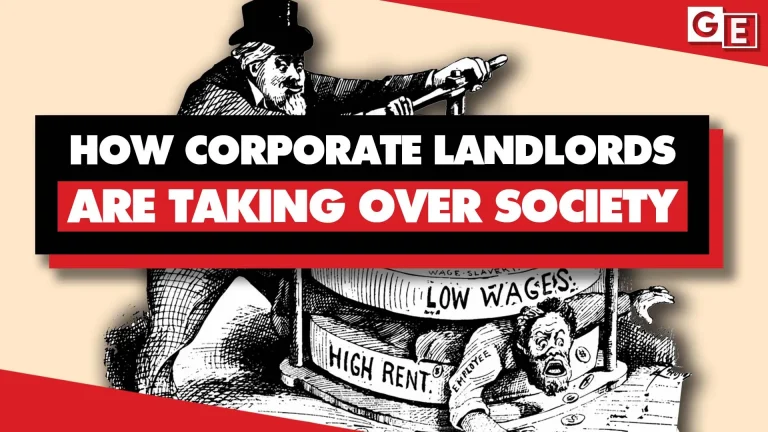Corporate Landlords Are Taking Over Society, Making Life Unaffordable
Landlords are taking over society. For many average working people, it has become impossible to buy a house. And the cost of renting housing has become prohibitively expensive. This problem is especially bad in the United States. But it’s not only a problem in the US; it’s a problem in many countries around the world — especially in Western countries in North America and Europe, whose economies have become financialized. In the United States, for instance, the largest landlord is not an individual; it’s a massive Wall Street investment firm: Blackstone, the private equity fund.
Blackstone owned more than 300,000 rental housing units in the US as of 2023. The number has only increased since then.
Blackstone and other Wall Street investment funds have been gobbling up residential housing. Then they ratchet up the cost of rent, which has fueled homelessness, as many people are being evicted from their homes.















